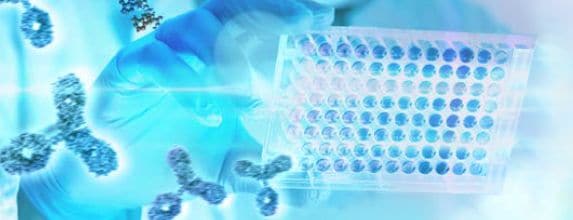Search Thermo Fisher Scientific
CD127 ELISA Kits
ELISA kits are commonly used to measure soluble biomarkers across a variety of research areas. ELISA kits for Human CD127 can be quantified in various samples, including plasma, serum, supernatant.
Invitrogen ELISA kits exist in two formats: Uncoated and Coated.... ELISA kits are commonly used to measure soluble biomarkers across a variety of research areas. ELISA kits for Human CD127 can be quantified in various samples, including plasma, serum, supernatant.
Invitrogen ELISA kits exist in two formats: Uncoated and Coated. Uncoated ELISA kits... ELISA kits are commonly used to measure soluble biomarkers across a variety of research areas. ELISA kits for Human CD127 can be quantified in various samples, including plasma, serum, supernatant.
Invitrogen ELISA kits exist in two formats: Uncoated and Coated. Uncoated ELISA kits include all the necessary reagents to coat your own plates and run your assay with maximum flexibility. Coated ELISA kits...
Invitrogen ELISA kits exist in two formats: Uncoated and Coated.... ELISA kits are commonly used to measure soluble biomarkers across a variety of research areas. ELISA kits for Human CD127 can be quantified in various samples, including plasma, serum, supernatant.
Invitrogen ELISA kits exist in two formats: Uncoated and Coated. Uncoated ELISA kits... ELISA kits are commonly used to measure soluble biomarkers across a variety of research areas. ELISA kits for Human CD127 can be quantified in various samples, including plasma, serum, supernatant.
Invitrogen ELISA kits exist in two formats: Uncoated and Coated. Uncoated ELISA kits include all the necessary reagents to coat your own plates and run your assay with maximum flexibility. Coated ELISA kits...
灵敏度 0.14 ng/mL
测定范围 0.14-100 ng/mL
样品容量
Supernatant
50 µL
Serum
50 µL
Plasma
50 µL
总时间
4 hr 45 min
(1 hr 20 min hands-on)
价格
货号EH276RB



